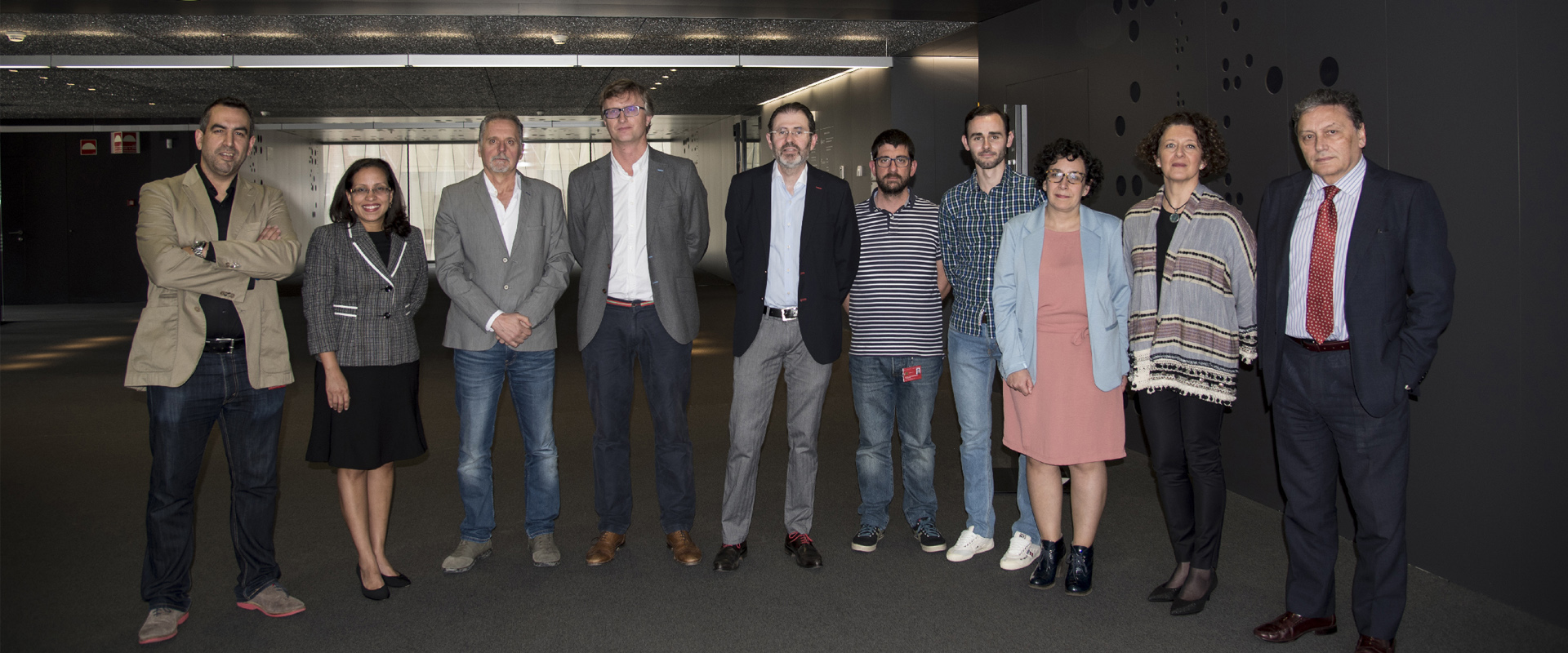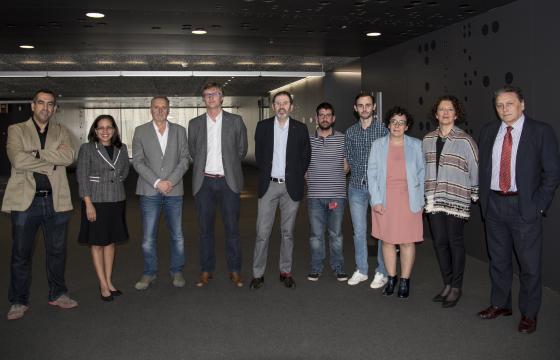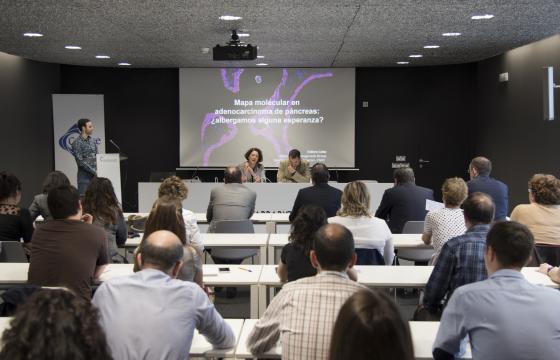
Navarrabiomed gathers over 70 pancreatic cancer specialists in symposium
- Ongoing research in the Navarra Health System-Osasunbidea focuses on biomarkers for early detection
More than 70 oncology, radiation therapy and digestive medicine professionals gathered on Thursday for a seminar on pancreatic adenocarcinoma, held at the biomedical research centre Navarrabiomed.
The event was organised and promoted by Antonio Viudez Berral, a specialist from the Medical Oncology Unit at the Navarra Hospital Complex (CHN) and researcher at Navarrabiomed and the Navarra Medical Research Institute (IdiSNA), as a meeting place for a comprehensive approach to pancreatic cancer. ‘We need to share the methods, techniques and care protocols being implemented at the different centres, while keeping abreast of the most recent lines of research at the global level, if we are to gain a deeper understanding of pancreatic research and come up with more effective treatments,’ Viudez remarks.
The seminar gathered a dozen speakers from healthcare and research centres in Spain and the USA, including Dr Roberto Pazo (Miguel Servet University Hospital, Zaragoza), Dr Ana de Jesús Acosta (Johns Hopkins University, Baltimore), Dr Isidoro Cobo (Spanish National Cancer Research Centre, CNIO), Dr Sara Arévalo (Donostia University Hospital), Dr Fernando Pardo (Clínica Universidad de Navarra, CUN) and Dr Ruth Vera (Head of the Medical Oncology Unit, Navarra Hospital Complex, CHN).
Dr Vera, during her presentation.
Early detection from blood tests
In pancreatic cancer, the tissue adjacent to and interacting with the tumour plays a fundamental role. Various strategies are currently being studied in different countries to weaken this tissue and thus make treatments more effective.
Teams at Navarrabiomed and CHN are carrying out two research projects to identify biomarkers that predict response to treatment in two types of pancreatic cancer: pancreatic adenocarcinoma and pancreatic neuroendocrine tumours.
Likewise, the team led by Dr Viudez are working on a new line of research, focusing on early detection from blood tests – a way of accurately predicting which pancreatic cystic lesions can be precursors to pancreatic cancer. ‘Cystic lesion analysis and removal are key to preventing the development of pancreatic cancer,’ Dr Viudez explains.
Navarra: about 50 new cases every year
According to Asociación Española Contra el Cáncer (AECC), over 200,000 patients are diagnosed with pancreatic cancer worldwide every year. A genetic disease, cancer of the pancreas can be inherited or acquired, often as a result of unhealthy eating habits or lifestyles.
The global incidence of pancreatic cancer has risen over the past 40 years, going up by 113 per cent in Europe and North America. The rising incidence is associated with environmental factors, eating habits and smoking, and population ageing. In Navarra, there are 40 to 50 new cases every year.
Surgery, when possible, continues to be the main treatment for pancreatic cancer. Chemotherapy before or after surgery improves survival of patients. In advanced stages, doctors recommend combination chemotherapy. Early diagnosis increases survival rates (about 8 per cent five-year survival rate for the 2005-2011 period, according to the American National Cancer Institute, NCI; 27 per cent in cases of localised cancer and 2 per cent for metastatic cancer.
Photo: From left to right: Antonio Viudez, Ana de Jesús Acosta, Fernando Arias, Juan Vila, José Carlos Subtil, Joaquín Fernández, Isidoro Cobo, Sara Arévalo, Ruth Vera and Fernando Pardo.



